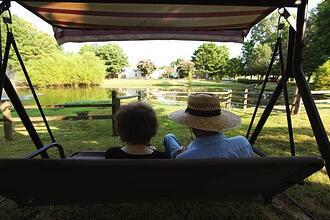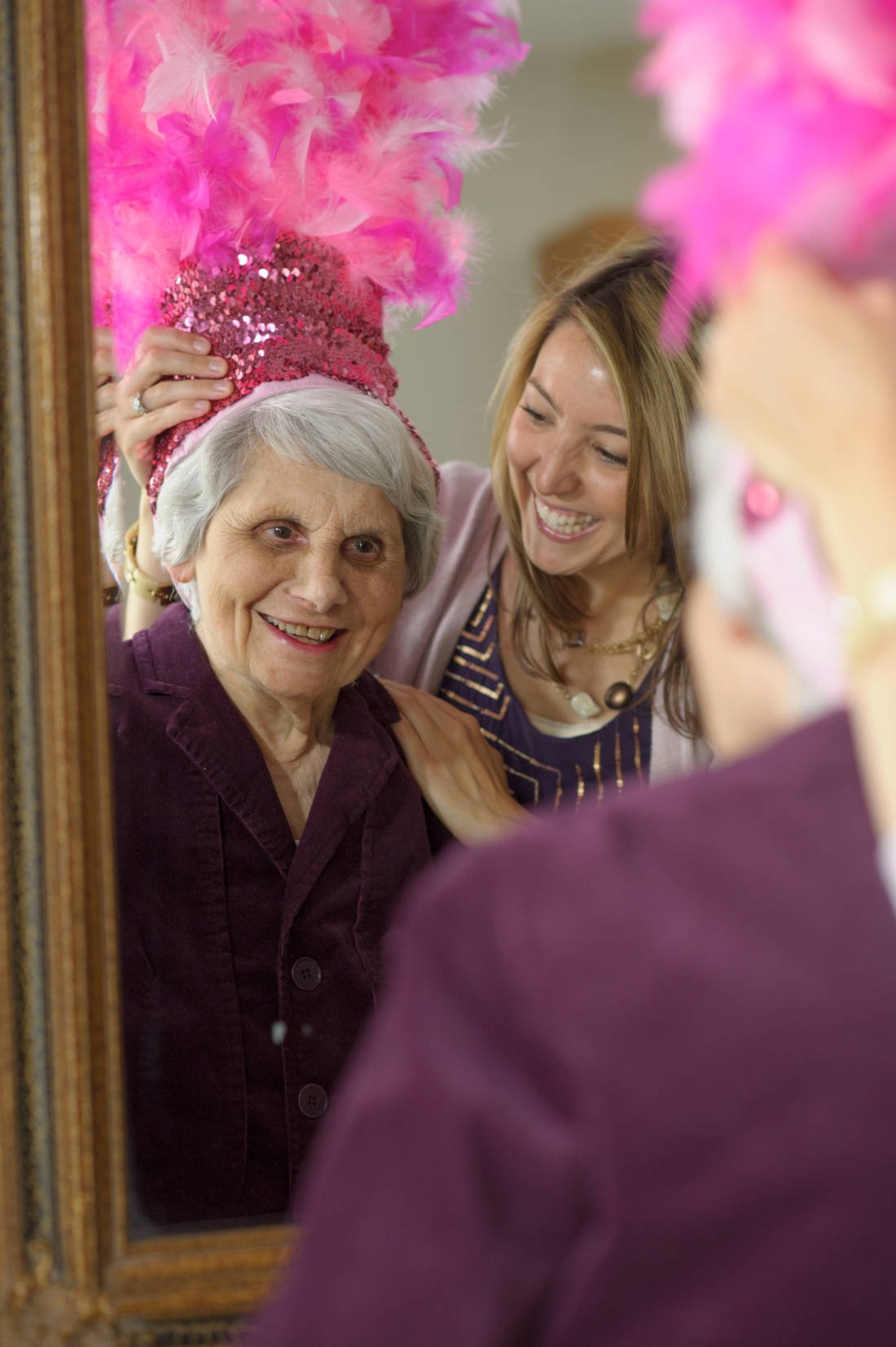 Depression is common among the elderly. However, it’s not a normal part of healthy aging. A major problem that stands in the way of treatment for seniors is that families often confuse the disease with signs of grief, which is natural in the face of major life changes. For this reason, it is not uncommon for seniors to struggle with depression and receive no medical attention. Or if they are seen by a physician, depression can often be misdiagnosed for a similar reason altogether and no treatment is administered.
Depression is common among the elderly. However, it’s not a normal part of healthy aging. A major problem that stands in the way of treatment for seniors is that families often confuse the disease with signs of grief, which is natural in the face of major life changes. For this reason, it is not uncommon for seniors to struggle with depression and receive no medical attention. Or if they are seen by a physician, depression can often be misdiagnosed for a similar reason altogether and no treatment is administered.
“True” depression, meaning clinical depression, lasts longer than a few days of “the blues.” It goes on for weeks and months and for seniors suffering from deep depression, the disease can spiral to a depth where treatment is no longer effective.
What is Depression?
Unlike “bouts of depression,” clinical depression has deeper roots. The Mayo Clinic defines depression as “a medical illness that causes persistent feelings of sadness and loss of interests.” Depression can range from mild to severe and manifest itself through other illnesses such as hypertension, immune dysfunction and heart disease.
Why Depression is a Major Senior Health Issue
Depression increases the rate of suicide. In elderly white men this rate increases. Suicide among people ages 80 to 84 is more than twice that of the general population (WebMd). The alarming rates of depression in people 65 and older has prompted the National Institute of Mental Health (NIMH) to declare the disease a major public health problem.
What Causes Depression in Older Persons?
There is no single definitive answer to the question of cause. Depression is a multi-faceted disease. Scientists believe that some people are prone to depression because of their biological make up. This genetic predisposition, when combined with the loss of a spouse, loss of independence and other life crises—can trigger the onset of the illness.
Factors that Increase the Risk of Depression in Seniors:
- Stressful life events (amputation, divorce, chronic pain, etc.)
- Lack of a supportive social network
- Relocation of residence
- Being female
- Demanding (change in) behavior
- Loss of appetite
- Weight loss or weight gain
- Social withdrawal
- Delusions (fixed false beliefs)
- Sleeping too much or too little
Signs to Look For:
- Demanding (change in) behavior
- Loss of appetite
- Weight loss or weight gain
- Social withdrawal
- Delusions (fixed false beliefs)
- Sleeping too much or too little
Treatments for Depression
Clinical depression is treatable. Eighty percent of those diagnosed show improvement (NIMH) after treatments. Effective therapies include: anti-depressants, psychotherapy, electroconvulsive therapy (ECT) or any combination of the three.
Because depression is viewed as a natural part of aging, red flags are often ignored and the illness goes untreated. If you or a loved one shows signs of depression be proactive; seek help from a physician or qualified mental health professional.
The Benefits of Community Life
One of the many benefits of living in a senior living community is the sense of belonging and friendship that residents experience. Living in isolation, alone at home, does little to prevent depression. The community environment of assisted and independent living communities provides daily opportunities for socialization, education, exercise and physical activity, recreation, and relationships. This lifestyle encourages seniors to enjoy life and provides companionship, support, and connections with other people who share many of the same experiences, helping to prevent depression.
Key Takeaways:
- Depression is common among the elderly. However, it’s not a normal part of healthy aging.
- A major problem that stands in the way of treatment for seniors is that families often confuse the disease with signs of grief, which is natural in the face of major life changes.
- Clinical depression lasts longer than a few days of “the blues.”
- Suicide among people ages 80 to 84 is more than twice that of the general population (WebMd).
- Scientists believe that some people are prone to depression because of their biological “make up.”
- Effective therapies for depression include: anti-depressants, psychotherapy, electroconvulsive therapy (ECT) or any combination of the three.
- Senior living communities provide opportunities for socialization, education, physical exercise, and recreation, allowing seniors to benefit from companionship and community life, which can help prevent depression.





 Depression is common among the elderly. However, it’s not a normal part of healthy aging. A major problem that stands in the way of treatment for seniors is that families often confuse the disease with signs of grief, which is natural in the face of major life changes. For this reason, it is not uncommon for seniors to struggle with depression and receive no medical attention. Or if they are seen by a physician, depression can often be misdiagnosed for a similar reason altogether and no treatment is administered.
Depression is common among the elderly. However, it’s not a normal part of healthy aging. A major problem that stands in the way of treatment for seniors is that families often confuse the disease with signs of grief, which is natural in the face of major life changes. For this reason, it is not uncommon for seniors to struggle with depression and receive no medical attention. Or if they are seen by a physician, depression can often be misdiagnosed for a similar reason altogether and no treatment is administered.